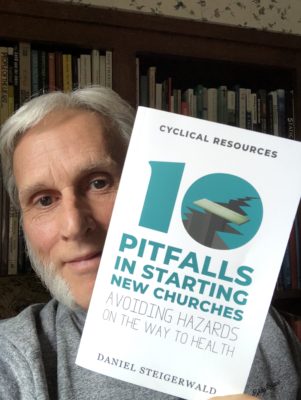Coaching Starters vs Standard Coaching
Coaching, as defined by ICF, involves partnering with clients in a thought-provoking and creative process that inspires them to maximize their personal and professional potential.
In other words, it has little to do with a coach intentionally imparting skills, perspectives, insights, etc. – that’s consulting and/or mentoring. It’s much more about drawing out the potential residing in the client. By employing a range of relational and practical skills, a good coach can help the client enhance their personal awareness, discover fresh insights, change unhelpful behaviors, and implement actions conducive to the client’s stated targets and growth goals. Of course, when Christ is in the mix, the client has even more resources at their disposal, as both they and their coach can tap into the riches of God’s wisdom, love and sufficiency.
While the above captures the essence of a Christ-centered coaching relationship, I question whether it adequately describes the kind of coaching missional church planters need to both flourish and to meet the rigorous demands of planting. In my experience, most church starters benefit tremendously by a more strategic, nuanced kind of coaching. In this scenario the coach relies heavily on good coaching process but also utilizes selective mentoring and modes of direct and indirect guidance to keep an initiative on the path to viability.
Typically, such elements involving impartation are only sparsely accessed by the coach, and only with the client’s permission. I’m suggesting they should be offered more frequently and with a shrewd discerning eye/ear that takes into account the starter’s experience, the expectations of the sponsoring agency, the tight timelines typical in startups, and the wisdom and experience of the coach (especially as those pertain to church startup). I’ve come to this conclusion based both on my experience in coaching many hundreds of church starters these past 15 years and also on the input I’ve gotten from consulting with other church planter coaches and coach trainers. In one of those conversations with Shannon Kaiser, training director of Fresh Expressions’ American division, she noted the following (used with permission), which corroborates my own findings:
In my initial conversations with clients, I will often [mention] that my primary role is not as a consultant or mentor, but rather as a coach. HOWEVER, I will sometimes ask to put on a mentor hat when I sense a strategic need to do so…for the sake of the mission. We typically agree to these parameters, and clients will often do the work of discernment and then ask if I see anything missing. When I do, I often take that opportunity to lift it up, and then they work through what that means for them in their context. And sometimes, even when they don’t ask, I’ll see the need to name something that is strategically important, and then spend some time on something…even if it was not the specific focus they brought to the conversation. So, while pure coaching skills are a helpful tool, I would say that it is rare for me to work with a client with whom I don’t sometimes set aside the purity of ICF’s guidelines where I see it might benefit the mission.
I’m still running this by friends who coach a number of church planters every week, as I don’t want to make assertions that aren’t backed up by others who regularly do this work. If you’re in that category, please let me know your thoughts on this.



